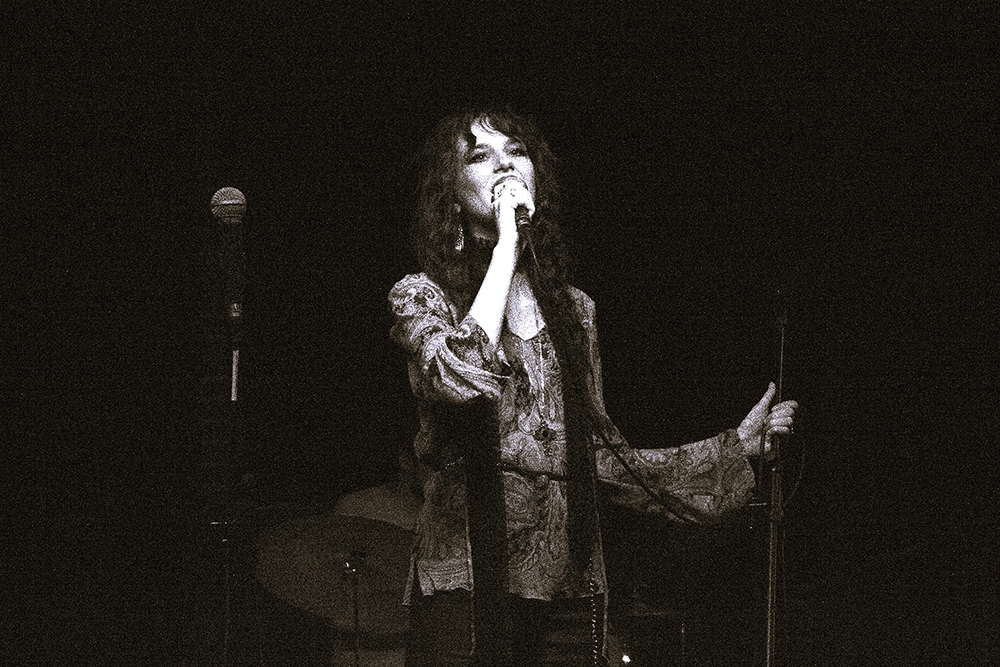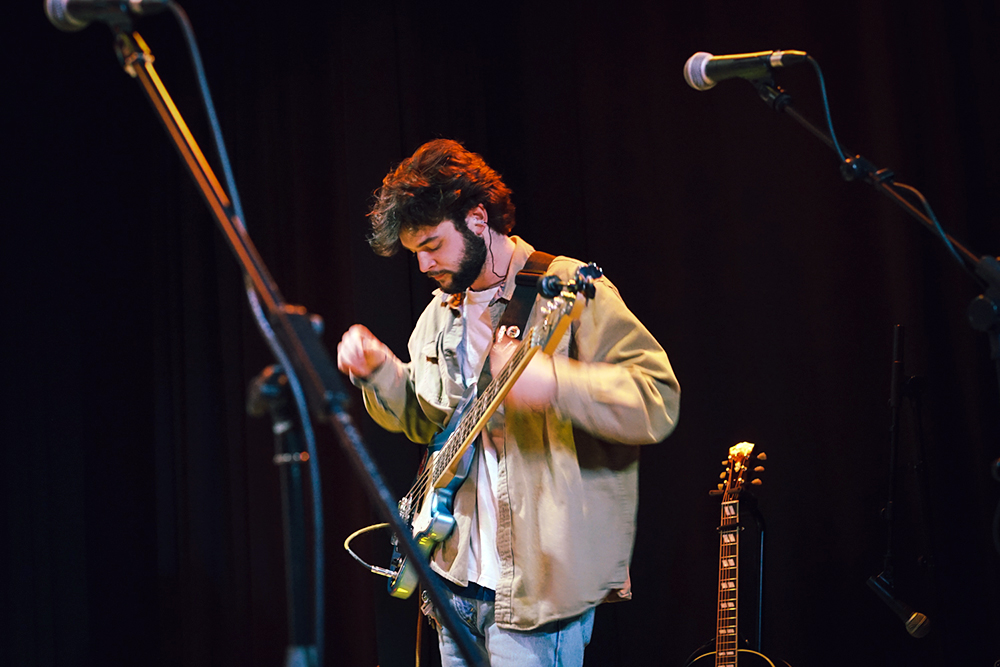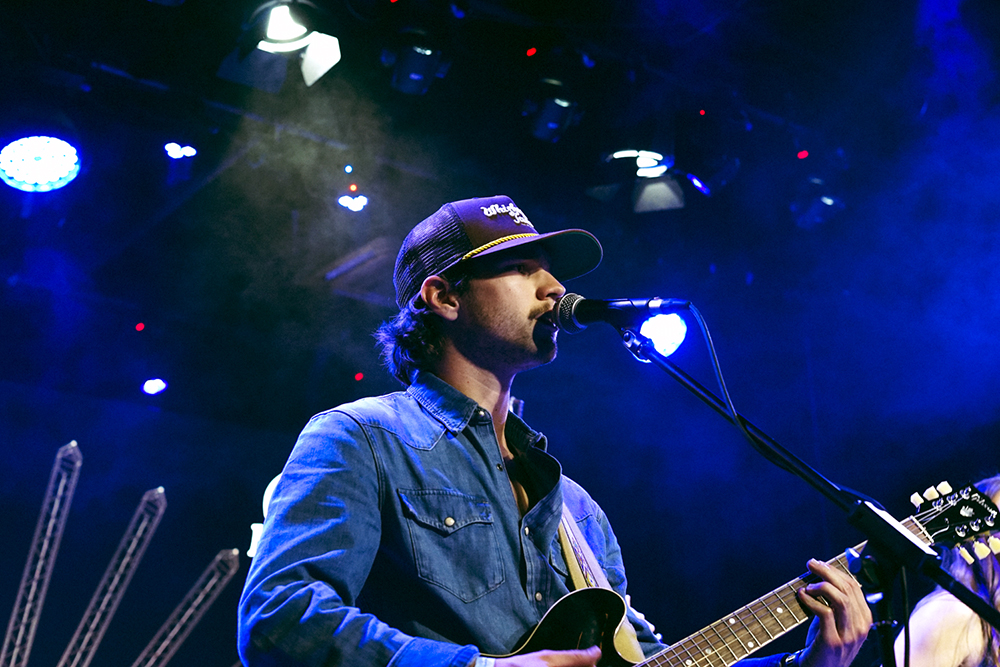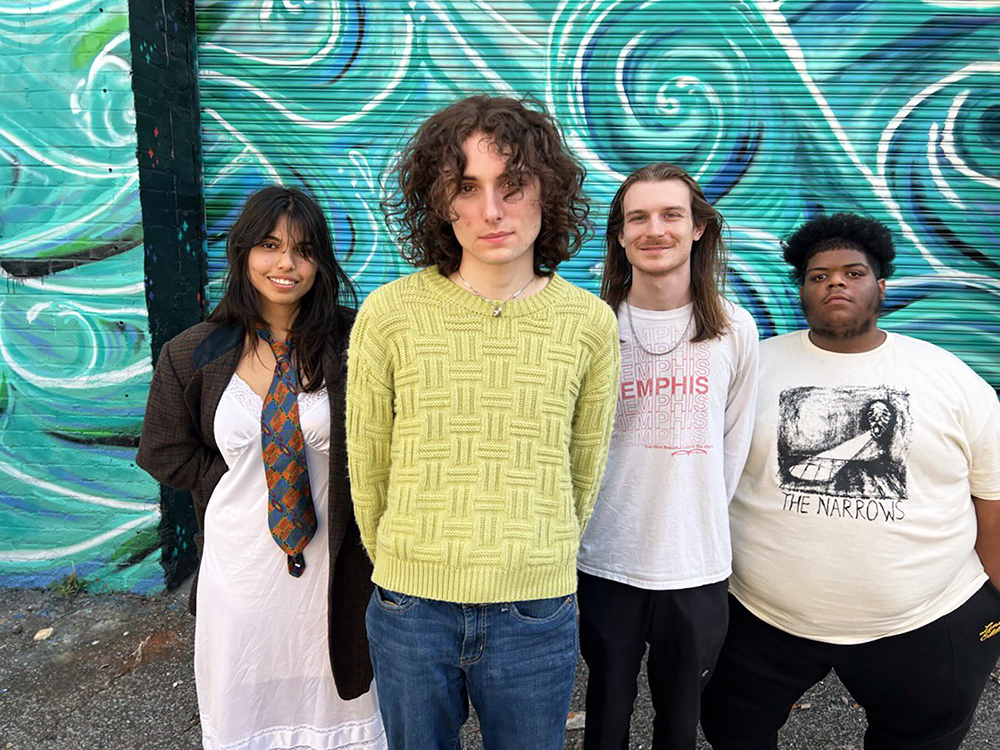On Sunday, March 30th, Growlers hosted a four-band bill organized by local booking agency Strickland Entertainment. The lineup boasted Arc of Quasar (a psychedelic rock duo out of Mississippi), Zoë Dominguez (a punk singer/songwriter out of Rhodes College), Degenerate Breakfast (a University of Memphis alt-rock outfit), and Alexis Jade and the Gemstones (a smooth Americana five-piece). Each young talent brought their own creative energy; performances featured a saxophone solo, a sitar, a Marcy Playground cover, and all types of fresh, original music. “We love booking bands with different styles,” says Zach Jennings, the first half of Strickland Entertainment. “We’re trying to expose people to each other, new fans seeing new bands and vice versa.”
That’s an approach well-suited to Memphis, which doesn’t have a cookie-cutter Nashville-type sound. It may be home to the blues and rock-and-roll, but there are far more sides to the Memphis music scene. “You’ve got old jazz and blues cats on Beale playing Albert and B.B. King, then you’ve got a country band at Tin Roof, then a DJ right next door, then you’ve got hardcore shows at the Hi-Tone,” says Malcolm Bryan, Jennings’ business partner. To Bryan and Jennings, uniting these different parts of the community is what Strickland is all about. “It’s not about genre; … it’s about community. … These are people we believe in as artists, and we want to help them out.”


Bryan and Jennings founded Strickland Entertainment Agency six months ago. Both local musicians and former Rhodes College students, they’ve spent the past three years navigating the booking scene with their own blues rock band, Crooked Diehl that I’m a part of. That meant going out to bars, digging through social media, countless email chains, and persevering past the classically fruitless response: “Yeah, we’ll make sure to call you back.” How to get a gig is the big question for all young musicians. Strickland Entertainment is looking to offer a solution.
At the start of their music careers, Jennings and Bryan faced plenty of their own booking struggles. “We talked with Ford Garrard in Boy Named Banjo about how no one would email us back. He suggested the idea of creating a booking agency to send emails from. … Suddenly people started getting back to us,” says Bryan.
The agency started out with who they knew: fellow Rhodes College artists. At the time, it was Zoë Dominguez, The Narrows, and Philip Nye, three artists they’ve seen in the classroom and on stage. At first, their services were mainly sharing contacts and sending emails. “We try to take the annoying part out of music: sending a booking email, setting up a show. We already had a solid contact list from gigging around Memphis,” says Bryan. Now, the entertainment agency is beginning to see the market they can tap into. “Booking is how it started, but there are tons of bands around Memphis who need a contact for a photographer or someone to do art for them,” says Jennings.
Crooked Diehl has taken Bryan and Jennings on shows all around the South. They organized their own tour for summer 2024 through South Carolina. For them, the process was rinse and repeat. “We would go out to bars, venues, restaurants, get a couple beers, and tell the bartender we’re trying to book a band.” Most places would slide them a crinkled receipt with a contact and never call back, so they kept going back until they got a name and a response. “No one really took us seriously till we got on stage, then they’d ask us to come back,” says Bryan.
Their latest artist, Degenerate Breakfast, was on the March 30th bill at Growlers. Bryan and Jennings discovered the University of Memphis band through a local bill and reached out. Now, Degenerate Breakfast has their album release show scheduled for May 2nd at the Hi-Tone. They’ll be sharing the stage with local acts The Narrows and ¡El Chavos!. Zoë Dominguez, another Strickland artist, will also be playing at B-Side on April 26th, along with Avon Park and Crooked Diehl.
The duo talks about their goals for each show they book: “We’re always trying to bring in a bigger crowd,” says Jennings. Their time in Memphis has shown them that crowd size can be a problem. “It’s tough to get people to come out and see you, even if they say they will,” says Bryan. But this is part of a larger problem; it’s why local clubs and festivals close down. “We’re working on promoting and getting our name around Memphis so audiences can keep up with our artists.” And after their successful first show at Growlers, Strickland is looking to grow.
Bryan and Jennings strive to lean into their personal experiences as musicians with Strickland Entertainment. To them, that will be what makes them successful. “I feel like most people in music business booking went to Belmont [University], studied at school. … Being musicians, we know exactly how things should run,” said Jennings. “You can’t learn all of it in school. Booking changes city to city. Nobody tells you how it works in Memphis.”
The two have had their fair share of booking mishaps around town, as well. “We’ve met a lot of people that do booking who have never even been to the venue they book for. We were playing at Tin Roof and the booking agent told us to pull up front for load in, right in the middle of Beale, which you can’t do.” Suffice it to say, they didn’t move the police barricades, so the band ended up using a nearby parking garage.
Bryan and Jennings’ motivations for pursuing this as a real career come from their love of the Memphis music scene. “It’s all about building up the community. It’s one thing to move to a city like Nashville and work with a bunch of big industry names, but starting from the ground up feels so much more impactful.” Even as their brand continues to grow, Strickland Entertainment’s Memphis roots won’t change. For them, success means starting something new in a city full of young and determined talent. “Memphis has always been known for that. It put itself on the map.”

